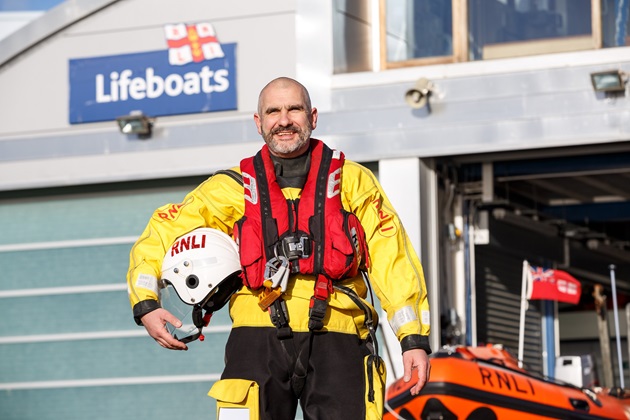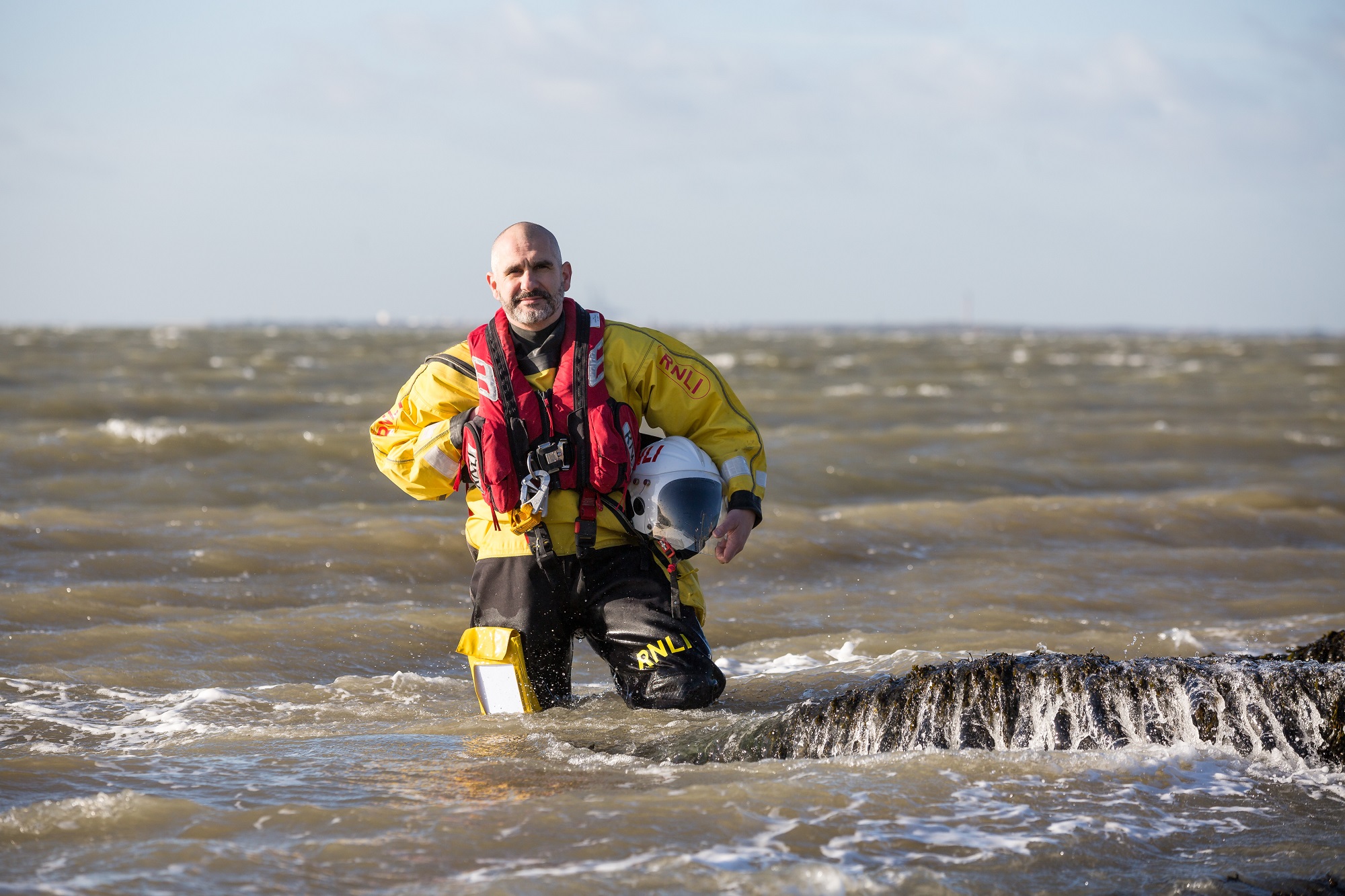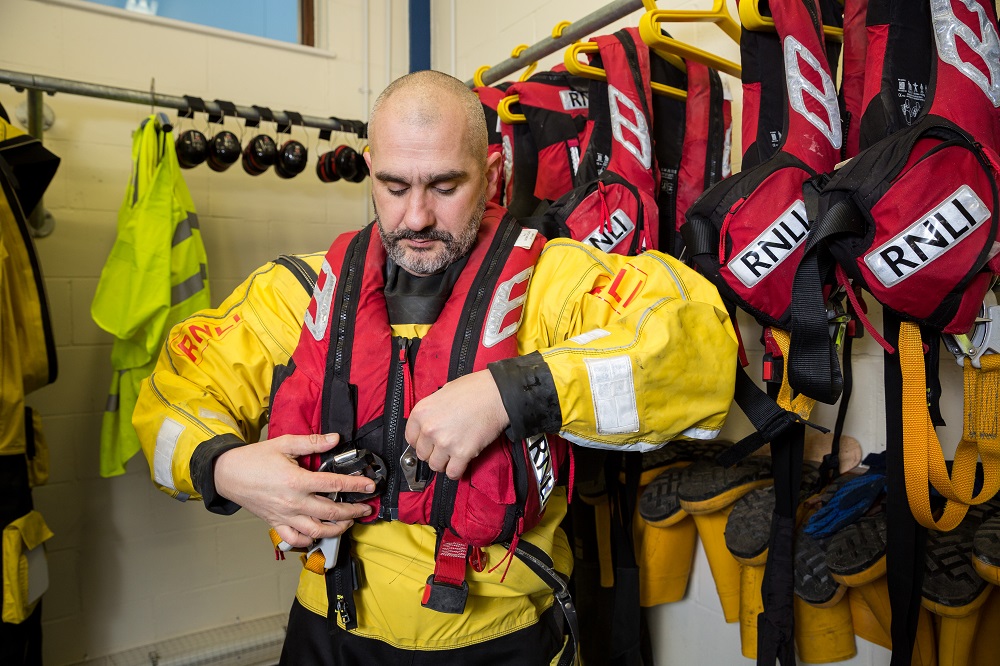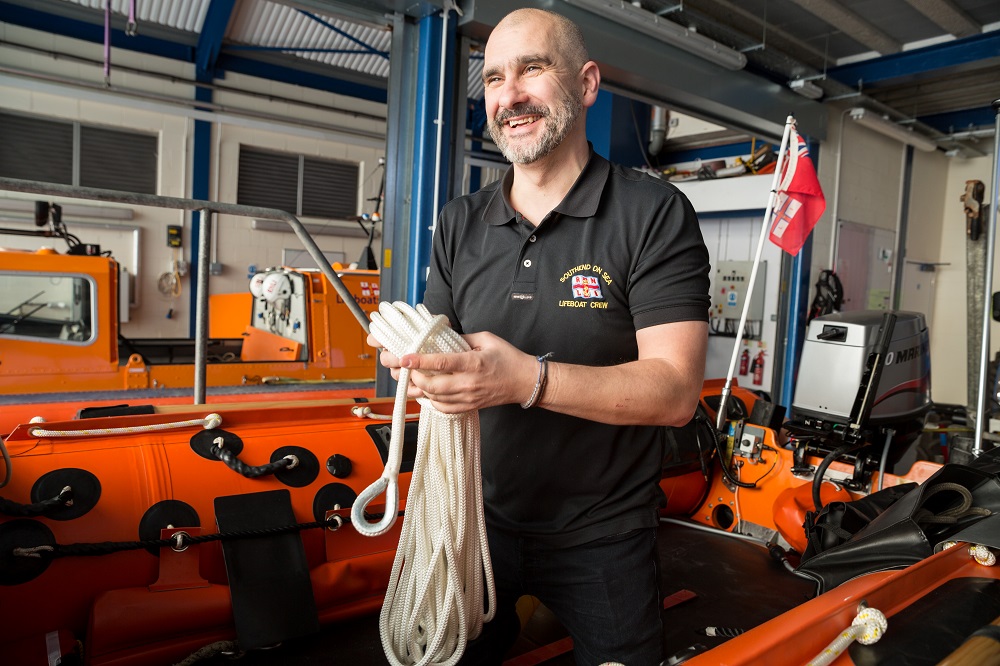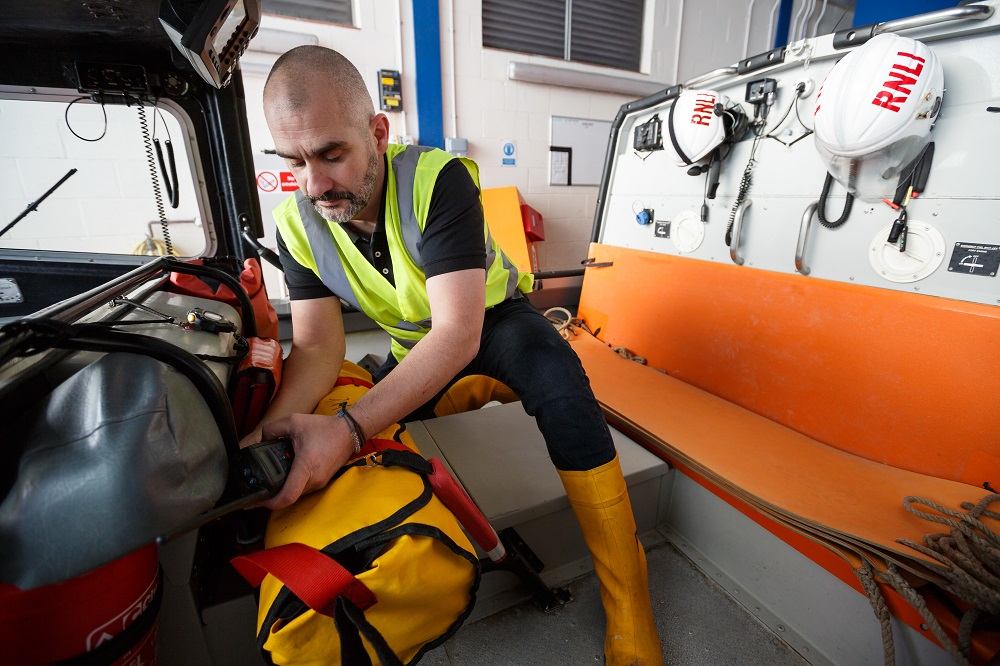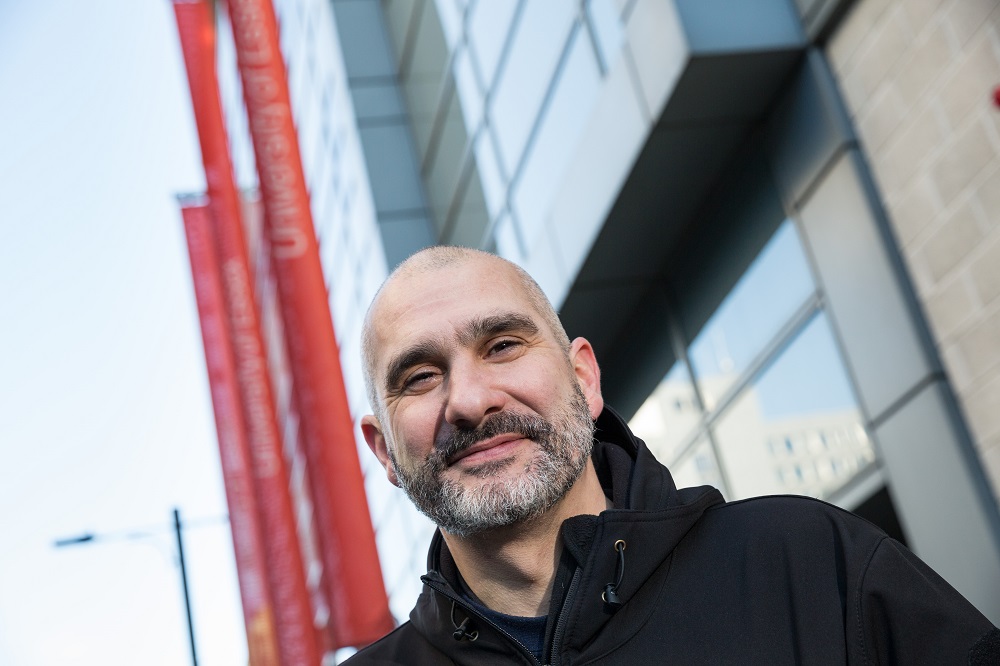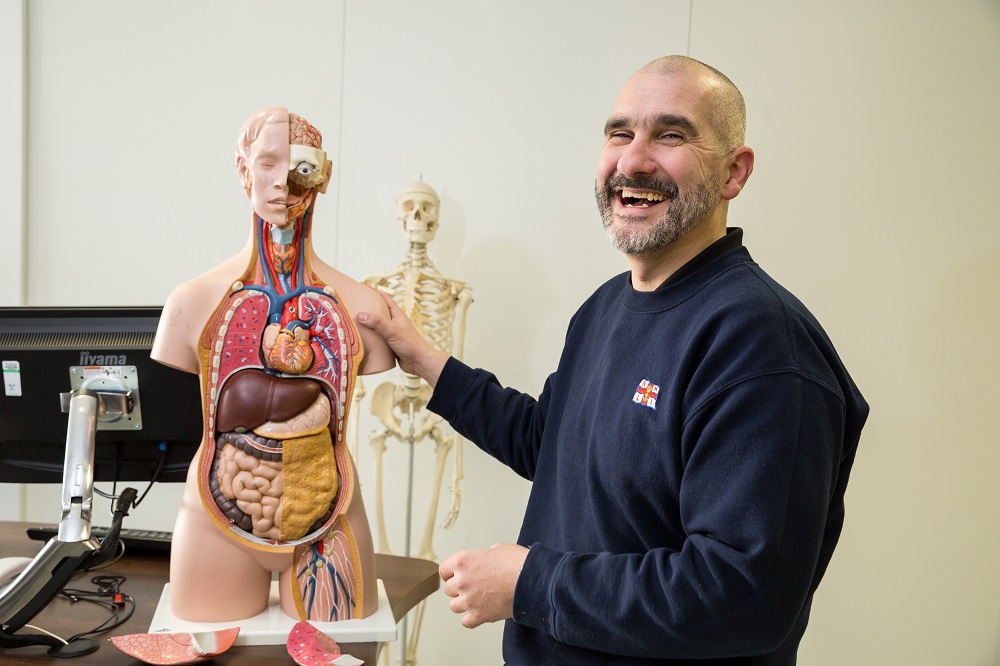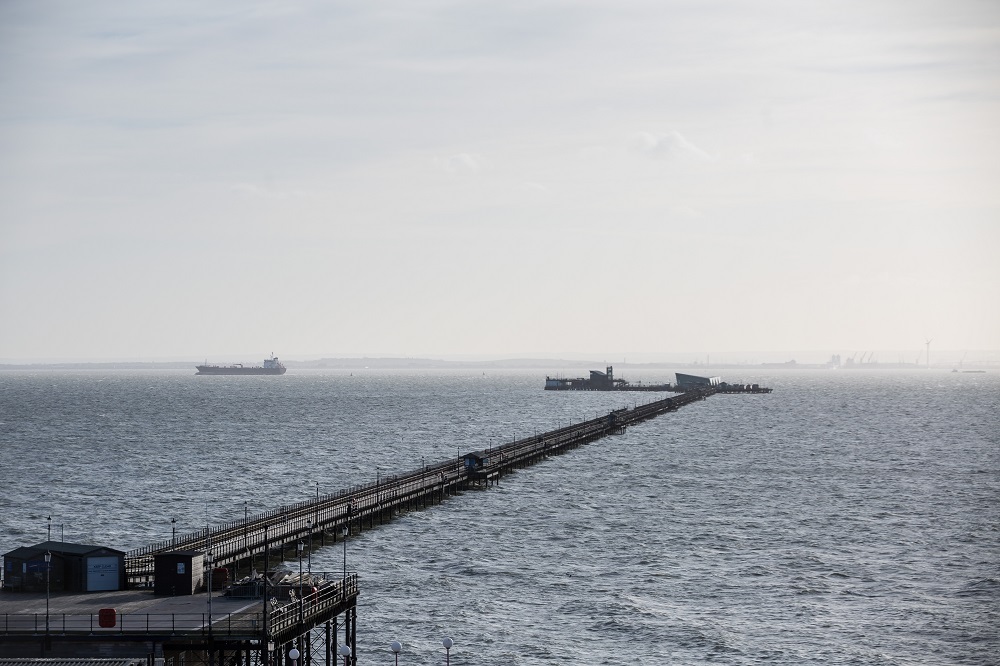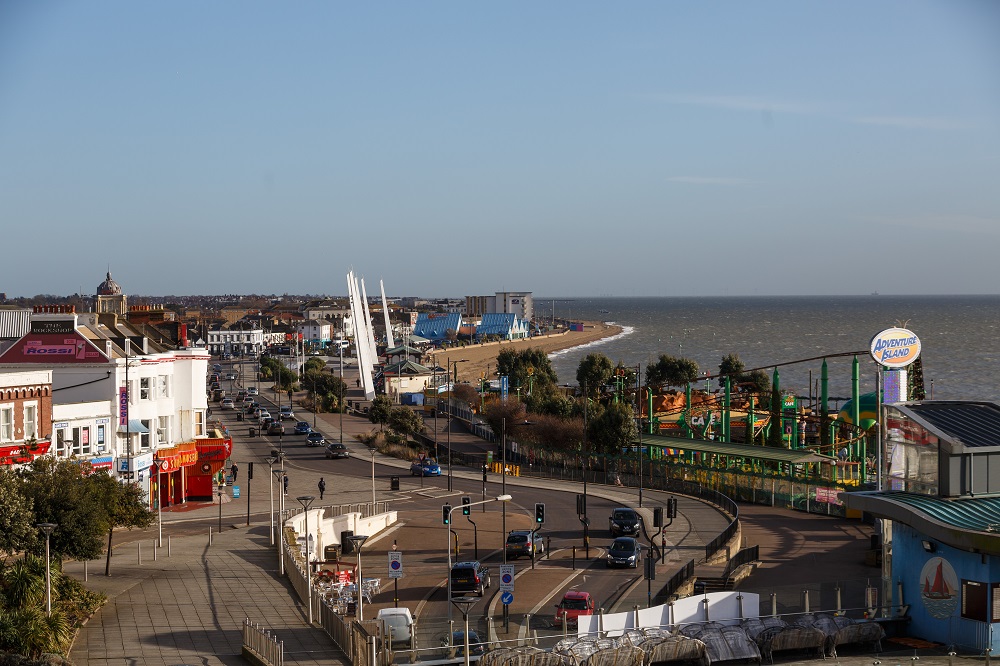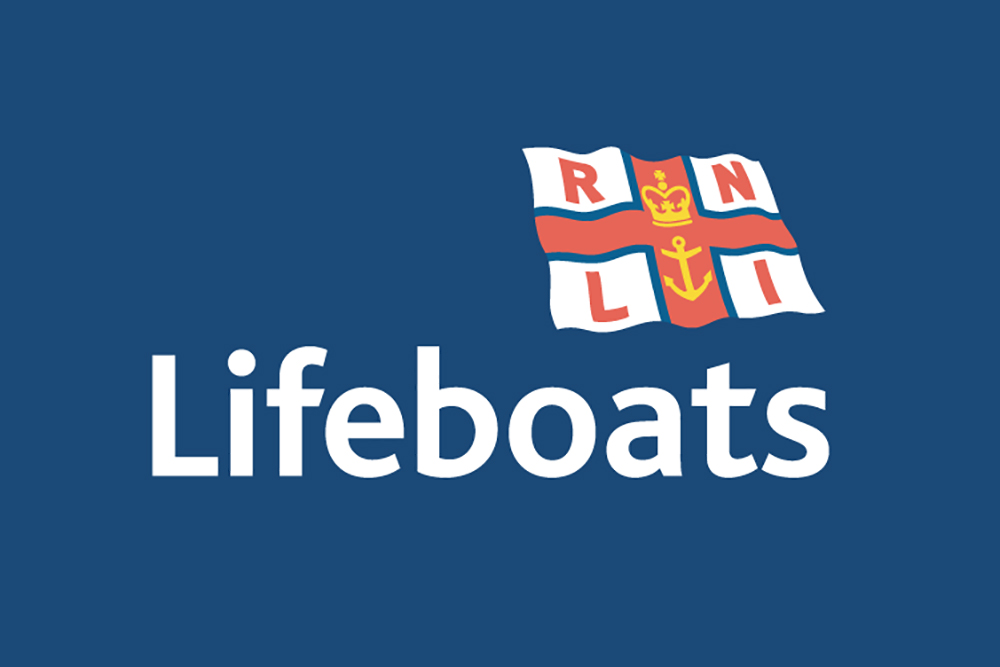By day he's a senior nursing lecturer, but when on-call as an RNLI volunteer RCN member Iain Keenan can find himself in the middle of the Thames Estuary helping people in trouble.
A familiar face around the seaside town of Southend in Essex, Iain has devoted his working life to supporting others. "I know it might sound like a cliché, but I just like helping people," says Iain, who, as well as teaching the next generation of nurses, has spent the past two years volunteering for the RNLI, the lifeboats charity.
Southend is one of the UK’s busiest coastal lifeboat stations and Iain is sometimes on-call when he doesn't have working commitments at the University of Essex.
"On my first call-out, I did get some funny looks running through the high street to the pier with a beeping pager going off. I now wear my lifeboat jacket if I do have to sprint through the town so people know that I’ve not just run out of a shop."
Iain commits to training one evening a week and is on-call one weekend and one night every month should an emergency arise.
It's been a real eye-opener
"When I joined, I thought it would be mainly call outs to broken down boats, but it’s been a real eye opener," he says.
Call outs can range from general first aid to people experiencing mental health issues. "I wasn’t expecting that," says Iain. "It has advanced my nursing as I often have to deal with quite vulnerable people. I’ve never been one for an adrenaline rush, but I’m normally the one who gets called out to people in distress as the rest of the crew know I’m a nurse and have the skills to remain calm in these kinds of situations."
Stormy situations
When Iain is called to the station, he doesn’t know what the job might be until he arrives. During a storm earlier this year he was called out to a boat drifting with no sails towards the pier. A member of the public had rung it in, but when the crew went out to the boat, they had no idea if there was anyone on board or if it was just a boat that had come loose from its moorings.
"When you go to something like that, you’re not sure what you might find. As it turns out, it was someone who’d got lost and thought they could ride the storm out. We towed them back to safety."
But there are sometimes fatalities as part of the role and Iain has found his nursing skills help other crew members come to terms with this. "The discovery of a body can affect everyone. Being on hand to talk things through is really important. We’re all from different walks of life, but having good communication skills and being able to deal with the public really helps."
It was like a road traffic accident
Keeping composed when people are in very unsafe circumstances is also vital.
"I’ve had to jump onto boats during storms, and find people that are stranded on the water in the pitch black at night. One time we had around 40 people out by a wreck at low tide. When the tide starts to come in, it can happen pretty fast. None of them were aware of the danger they were in."
Summer is one of the busiest times for Iain and his lifeboat crew. This time last year they had seven call-outs in 12 hours. One of the emergencies was two young men on a jet ski who’d hit a sandbank at 70 miles an hour.
Using nursing skills
"When we arrived at the scene, it was like a road traffic accident," says Iain. "Both men were pretty battered and we had to use a spinal board to get them out. Thankfully they had a radio to call for help as they would have been in a lot of trouble otherwise with the tide coming in.
"Sometimes we’re dealing with people who have drunk too much and decided to take their boat out. They don’t always do as they’re told and, in a way, it’s not much different to working in A&E, which I did earlier on in my career. But on the whole, people are usually pleased to see us."
Words by Susan Embley. Pictures by Jonathan Perugia
The RNLI was founded in 1824 and since then its brave lifeboat crews and lifeguards have saved over 140,000 lives. Nowadays, nearly 5,000 people work as voluntary lifeboat crew members and a further 3,000 people give up their time to volunteer as shore crew.


